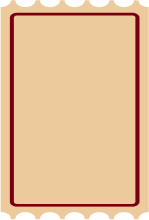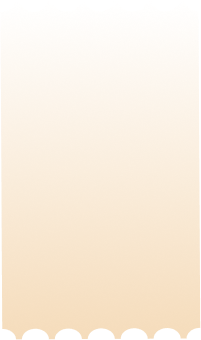Organisational behaviour refers the study in which people interact within the groups and organisations. Organisational behaviour theory is applied for the human resource for maximise the productivity of the individuals (Organizational Behaviour. 2017). It is a branch of social science and application of knowledge that how employees are behave in the workplace. In this report, chosen organisation is A David & Co Limited which deals in food and beverages (Bester, Stander and Van Zyl, 2015) . In this report include organisational culture, power and politics and content and process theories of motivation in which involve Maslow's need theory, Vroom's Expectancy theory, Alderfer's ERG theory and motivational techniques. In this also consists effective and effective team and many other various teams, Tuckman' and Jensen's model and benefits of team. At last include, concept and philosophies of organisational behaviour and path goal theory and its barriers.
You Share Your Assignment Ideas
We write it for you!
Most Affordable Assignment Service
Any Subject, Any Format, Any Deadline
Order Now View Samples
TASK 1
P1. Organisational culture, power and politics:
Organisational culture:
Organisational culture covers behaviours and values which contribute in the psychological and unique social environment of the business. This culture affects the manner of persons in which they interact. Organisational culture stand for the collective principles, beliefs and values of business members. In this culture involves customs, attitudes, values, beliefs, vision, norms, symbols, systems, language, habits and assumption. It is a way in which A David & Co Limited treats its customers, employees, community etc. and conducts its business. The level, in which freedom is permitted in developing creative ideas, decision making, personal expression etc.
Types of organisational culture:
Culture is many types such as power culture, task, role, person culture which are as follows:
Power culture: In power culture organisation, power is handle by only some individuals who influence all the employees with their power and direction. Power culture hold some rules and regulation which are adopted by those individuals who has power to influence others. Managers of A David & Co Limited who holds the power, judged and evaluate their employees through what they achieve rather than how they doing act and work in the company(Bissell and Dolan, 2012) . This culture is principally a strong culture which reduce the all the barriers regarding performance and work.
Role culture: Role culture are focused on the rules. This culture is controlled highly in which every individuals know about their works and duties that in which manner they have to perform their duties in the organisation. This culture has tall structure with long chain of command. In this culture, decision making process is very slow and organisations is not interested to take risk. In A David & Co Limited, roles and duties are delegated to the employees according to their qualification and specialisation.
Task culture: In an organisation, task culture is establish when teams are formed for solving any particular task and project. In this, power is shift according to status of the project and problems. In A David & Co Limited, right mix of personalities, skills and good leadership working in the group can be creative and productive. Normally in each teams four to five members are exists and each members give their equal efforts and complete the task in the innovative way.
Person culture: In this culture, persons are see themselves as unique and superior for the organisation. Organisation also exists for their employees, labours who work for the growth and development of the organisation. In A David & Co Limited, person culture is very important because they exists because of their productive employees and workers. Â
From above all the culture, A David & Co Limited adopt the person culture which is very productive and creative to them.
Organisational power:
Organisational power is an ability to impact others in best manner. It is a capability to influence and direct others people behaviours in the organisation with the effective control and utilisation of the resources. It is relationship of exchange in which transaction is occurs when managers use the power and influence the other's behaviour(Carlström and Ekman, 2012) .
Types of power:
power is many types who influence the people in several way such as reward power, coercive power, legitimate power etc.
Coercive power: It is a power who able to punish others for not following the directions and orders. When coercive power is use on the daily basis then its result comes in fear, dysfunction etc. Because this power is a threat of something destructive and negative and highlight the sub ordinate's position in the business. In A David & Co Limited, sometimes managers use this power to threaten the employees for not following the orders which leads to negative impact of the employees and after certain time they refuse to perform work.
Reward power: Reward power is a capability to give rewards to their employees for good performance. Rewards are not only in Monterey terms but also in promotion, incentives, status, honour etc. In A David & Co Limited, rewards are given for motivate and encourage the employees towards effective work. Reward is a system in which employees wants to achieve rewards such as promotion, incentives etc. for this they give better productivity to their company so they can achieve reward(Carney, Cuddy and Yap, 2015) .
Referent Power: Referent power means people liked the respect from the others. In this power, managers treat their employees in respect manner and achieve trust of their workers and seek their cooperation. In A David & Co Limited, employees take somebody as their ideal and follow their rules and behave accordingly to them. Employees possess this power when other people like and respect them .
A David & Co Limited adopt reward power in their business for motivating the employees towards better performance of work.
Organisational politics:
Organisational politics is a self-interest and following of individual agendas in the organisation without respect to their effect on the business's efforts to attain targets. Effective politics not about only winning but also maintain the relationships of the employees while attaining the results. In A David & Co Limited, organisational politics can be unofficial, informal etc. to influence the employees, sell ideas, maximise the power and accomplish the targeted goals. Positive and effective power treat all the employees on the equal basis and do not create partiality among them. Its result come in positive way, employees give their best to the organisation(Fink, Dauber and Yolles, 2012).
TASK 2
P2. Content and process theory of motivation and motivational techniques:
Motivation:
Motivation means a need that requires satisfaction. These needs are acquired through influence of lifestyle, society, culture, values, beliefs etc. Motivation refers as people's actions, goals and behaviour which are occur for many reasons. Motivated people can perform in better way and maximise the organisation's profit and share in the market. An individual motivation can be inspire and influence form others behaviour and any event. Motivation is a most important component which helps a person to move forward. A David & Co Limited motivate their employee by giving reward and increase competition among them. So, they can give effective result and better productivity to the company for achieving best results and profit(Gold and et. al., 2013) .
Theories of motivation:
Theories of motivation means influence the people's behaviour in the different different way in which they perform effectively. There are various types of motivation theories which are developed the concept of motivation. It is a type of energy which push the employees towards work hard and attain the goals. Theories of motivation is two types such as content and process theory of motivation.
Content theory of motivation:
Content theory of motivation find the solution of what motivates the people in the context of organisation. In this include many types of theories such as Maslow's need hierarchy theory, McClelland's need theory, Herzberg's motivation theory and Alderfer's ERG theory of motivation which are as follows:
Maslow's need hierarchy theory: This theory is given by Abraham Maslow. He is defined the strength of specific needs at the various point of time. Maslow given his theory in hierarchy form which is satisfy in terms of lower to bottom. In this include physiological needs, security needs, social needs, self-esteem needs and self-actualisation needs which are as follows:
Physiological needs: Physiological needs mean basic needs such as food, water, shelter, air, sleep, clothes etc. which have to fulfil by A David & Co Limited of their employees by providing them basic salary. These needs are very important to survival of people.
 Security needs: After satisfying the physiological needs, this need take place. In this need, employees of A David Co Limited wants job security, health and safety, economical security and other security from physical danger. Satisfying these means need of more money.
Social needs: People is social being. In this needs, employees of this company take interest in belongingness, companionship, social interaction etc. They want to active in socialise factor, making friends etc.
Self-esteem needs: After fulfil social needs, esteem need take place. In this need, employees of A David & Co Limited wants self respect from others. They want to increase their knowledge, confidence, competence, achievement etc. If company satisfy their employees then they feel self-confident, capable and strength of being useful for the company(Xerri, and Brunetto, 2013).
Self-actualisation needs: After satisfy the all need, self actualisation needs take place. This is the higher level needs of the employees. In this need include training, growth, advancement, creativity etc. Employees of A David & Co Limited wants to take new challenge, growth and advancement of itself etc. This need increase the employee's potential.
Process theory of motivation:
This theory find the solution that how motivates the people. In this includes various motivational theories such as Vroom's Expectancy theory, Reinforcement theory, Adam's Equity theory, Stick and Carrot approach of motivation theory etc. which are as follows:
Vroom's expectancy theory: This theory was developed by Victor. H. Vroom, who trust that individuals are motivated through perform activities and achieving goals. This theory is a concept of Valence, Instrumentality and Expectancy which are as follows:
 Expectancy: This belief that if more efforts are contribute then its leads the higher performance. In A David & Co Limited, if employees are doing hard work then they give better performance to the company. Its affected by some components like having right knowledge to do the work, having the right availability of resources etc.
 Instrumentality: This element trust that if any individual perform good then its result will be received in effective manner. This company motivate their employees to give their best to achieve better outcomes. Its main thing is that clear understanding between outcomes and performance(Hutchinson and Jackson, 2013) .
 Valence: Valence refers that if individuals are motivated then its result automatically comes in better output. A David & Co Limited motivate their employees by money which generally give their best to achieve money which result comes in success.
Techniques of motivation:Â Increasing motivation can help to improve performance in the workplace. There are many types of techniques which are as follows:
Create a positive work environment: Positive work environment can encourage the people for effective work because positivity can give them stress free work. A David & Co Limited give their employees freedom of work and decrease the conflicts between them which create the positive environment.
Provide incentives: Incentives, rewards etc. are give the high motivation to the employees. This company also provide incentives such as gifts card, cash prize etc. to their employees for increasing their productivity and efficiency(Kellison and Mondello, 2012) .
TASK 3
P3. Different types of teams and Tuckman and Jensen's model of team development
Team:
Team refers to be a group of individuals who come together to achieve prescribed objectives. It includes individuals having consonant skills, qualities and educational qualifications. It works together to identify weaknesses and strengths of an organisation.
Effective team: Group of individuals who are capable of attaining goals or objectives defined by a department in the organisation is said to be an effective team. In context to A David & Company Limited an effective team will assist in performing daily operation with their skill sets and practices.
Ineffective team: Group of members who are not aware about their objectives and goals and have low ability is said to be an ineffective team. This type of team creates conflicts, tensions, disagreements, criticism, etc. In context to A David & Company Limited ineffective team will be not capable of attaining organisational goals.
Difference between effective and ineffective team:
|
Effective team
|
Ineffective team
|
|
Effective team is unit of individuals joined to solve problems of system and to achieve goals.
|
Ineffective team is group of individual who have members lacking capability to attain goals.
|
|
Members of effective team have clear goals(Wood and et. al., 2012) .
|
While, this team have no clear goals and objectives.
|
|
In effective team there is proper communication between employees.
|
While, ineffective team have one way communication and no proper commitment.
|
There are many types of team which are as follows:
Functional Team: It defines a group of persons who live in a same department and active in execute a particular purpose in an enterprise. In A David & Co Limited, groups are create in each administrative department i.e. information technology, production, marketing, human resource, research and development etc. and they are involved to perform a specific role.
Problem Solving Team: This team is defines a group of individuals who belongs from different management departments. This group is essential for A David & Co Limited to find out any difficulties arises in the business(Lawrence, and Lee, 2013) . There are various types of members in a group who have several skills and qualities to solve a issue. This team is forming to determine the problem or issues and apply the ideas to find out the answer.
Project Team: This is a group of individuals who are active to perform on a specific project for a particular time period. In this involve members from various departments and specialist from external organisations and if task id complete, then this group is dissolved.
Tuckman and Jensen's model of team development:
The Tuckman and Jensen's model of team development have five different stages. Each phase play an important role in improving team performance. In context to A David & Company Limited the leader can use this model to develop team and improve their performance.
Forming:  It is the first stage of this model, in order to develop team. In this phase employees gives introduction and information about their interests and education to each other. They have unclear obligations and roles. The leader should be prepared to give individuals answers related to organisational goals and objectives. In forming stage members have trust issues and low morale. On context to A David & Company Limited forming stage will assist team members to know about each other.
Storming: It is the second stage of this model. At this phase dissatisfaction occurs between employees during unit procedure. Group members have conflicts because of different ideas, opinions , views and everyone compete with each other. Leaders provide proper support to individuals to solve issues. In context to A David & Company Limited storming phase will result in backstairs, as politics occur in this stage(Millar, Hind and Magala, 2012) .
Norming:Â In norming phase individuals are agree to work with one another. Now they have no competition and everyone considers each others views , ideas, opinions, etc. They coordinate and cooperate to attain goals. In context to A David & Company Limited this phase will assist in goals accomplishment through various ideas and thoughts.
Performing: In performing stage everyone has clear goals and objectives. Now they know very well what they have to do. They concentrate on over-attaining goals and are capable of taking decisions without any help and guidance of leader. In context to A David & Company Limited this phase will help employees in attaining objectives with their own directions(Okurame, 2012) .
Adjourning: It is the final stage of team development. In this phase assigned tasks are completed and everyone feels good, as they attained the prescribed objectives. Now they move to new tasks or projects. In context to A David & company Limited this phase will help in patching up activities and moving to new tasks.
Benefits of teams:
Teamwork is very essential for each business to provide opportunities and chances to individuals to create coordination with every one and improve and enhance their performance in A David & Co Limited. It aid to share information and knowledge for good performance. Teamwork also improve mutual help among team members. Employees can learn from every one and enhance their skills and knowledge.
Need online assignment help in Australia from professional experts to score higher grades. Contact us to get the best assignment writers for your assignments.
TASK 4
P4. Concepts and philosophies of organisational behaviour:
Concept of organisational behaviour:
 Organisational behaviour is a study of the behaviour of an individual in an enterprise. This study is develop effective performance of people in the business. By this concept, HR administrator of A David & Co Limited achieve maximum productivity with quality from employees and group members. It deals with presentation, determination and control the activities of subordinates in the organisation. People's behaviour is a style of interaction or action of persons in the group(Robbins, and et. al., 2013). Organisation behaviour is principally categorised into two factor such as behaviour of people and nature of organisation. Positive and effective actions of employees support to develop business operations more effective that increase the productivity.
Philosophies of Organisational Behaviour (Path Goal Theory)
Path Goal Theory is a model of leadership that was developed in 1970 by Martin Evans who was good in the field of leadership in various cultures. Behaviour, style and action of a leader is healthy and good for workers in performing work and attaining organisational goals. Leaders of A David & Co Limited have responsibility of motivate and encourage their subordinates and maximise their productiveness. There are three factors of path goal theory that are as under:
Consideration:
It is categorised into two parts i.e. employee characteristics and task and environmental characteristics which are as follow:
Employee Characteristics:
It mention that leaders action is based on the need and demand of subordinates and they delegate work to subordinates through which employees' needs are satisfy by indirectly and directlyTeh and Sun, 2012) . This situation motivate and encourage the subordinates and support to perform work more efficiently and effectively. In A David & Co Limited, there are many workers who have different demands and needs. Some wants are focused on non-monetary terms such as status, respect, honour and value and monetary-term like incentives, promotion and salary.
Task and Environment Characteristics:
Accordant to this element, path goal theory is based on decrease the obstacles of those elements which impact the performance of the business. Leaders of A David & Co Limited support their workers to select best and effective path to fulfil company's targeted goals. It is focused on three component which are as under:
- Design of the task where leader provide or rendering the performance structure of a task.
- Formal authority system is based on task authority in which leader can provide effective and clear objectives to the employees.
- Work group is provide sociability, devotion and enthusiasm to each group members.
Leadership style
Leadership style is a behaviour and action of leaders that is focused on characteristics of work and workers. Leaders use several style and behaviour of leadership to motivate or encourage the employees and attain organisational targeted objectives and goals(Unsworth, Dmitrieva and Adriasola, 2013) . These are as under:
Directive: In this leadership, leaders provide direction and path to their group members about how to doing a work in the business in respect to attain their targeted goals. Sometimes, it is challenging to execute task and work due to changing environment. But leader of A David & Co Limited provide direction and path to their followers and employees which improve or better their productivity and performance.
Supportive: This style is the effective leadership behaviour where leaders turn into more supportive and helping nature with their employees and followers. They help in challenging task and take decisions about problem solving issues in the company. When subordinates get help from top managers and authority then they feel relief and motivated and increase their productivity and performance(Wilkins and Huisman, 2012) .
Participative: In this leadership, leaders are ask and convey with their group members before taking any decisions. Leaders of A David & Co Limited involved their members in decision making activity.
Achievement-Oriented: Leaders determine targets and goals for group members to enhance their performance for achieving the level of productivity. In A David & Co Limited, it is the best effective leadership behaviour to enhance team productivity and performance of the company.
Focus on Motivation:
For improving and enhancing the performance of workers, company need to concentrate on their motivation. There are some factors which are as follows:
Define goal: In this step, A David & Co Limited need to determine objectives and motivate or encourage their workers to perform perfectly to fulfil goals.
Clarify path: After define objectives, a effective path must also clear to attain that objectives. It decrease the confusion and betterment of the productivity.
Remove obstacles: There are various types of obstacles which are arises in performance. So, it is the responsibility of leader to eliminate that barriers(Wilkinson and et. al., 2014) .
Provide support: It is a effective motivational component for workforce to get help from team leader for performing the task and problem solving decisions. Through this, subordinates feel motivated and increase and improve their performance and productivity in A David & Co Limited.
Barriers in effective performance:
Many barriers are face by employee during the effective performance which are as follows:
- Ineffective team.
- Unclear values and strategy and conflicting priorities.
- Poor horizontal communication and coordination.
- Leader behaviour too top to down.
- Closed and poor vertical communication.Â
- Poor development, management skill and leadership.
CONCLUSION:
From the above-given report, it has been concluded that organisational behaviour plays an essential roles in increasing and improving the productivity of the employees. Organisational culture, power and politics can affect in both positive and negative manner. The organisation can adopt several motivational theories to encouraging their employees towards better performance of work. Tuckman's theory reflects the entire team formation which is to solve a specific task of the organisation. Different teams are the help to the organisation for solving the various types of issues and problems. Path goal theory describes the different leadership style which is better for employees as well as organisation.
You may also like to read :
R/508/0486 - Environmental Factors Over The Decision Making Of ASDA
Amazing Discount
UPTO55% OFF
Subscribe now for More
Exciting Offers + Freebies










